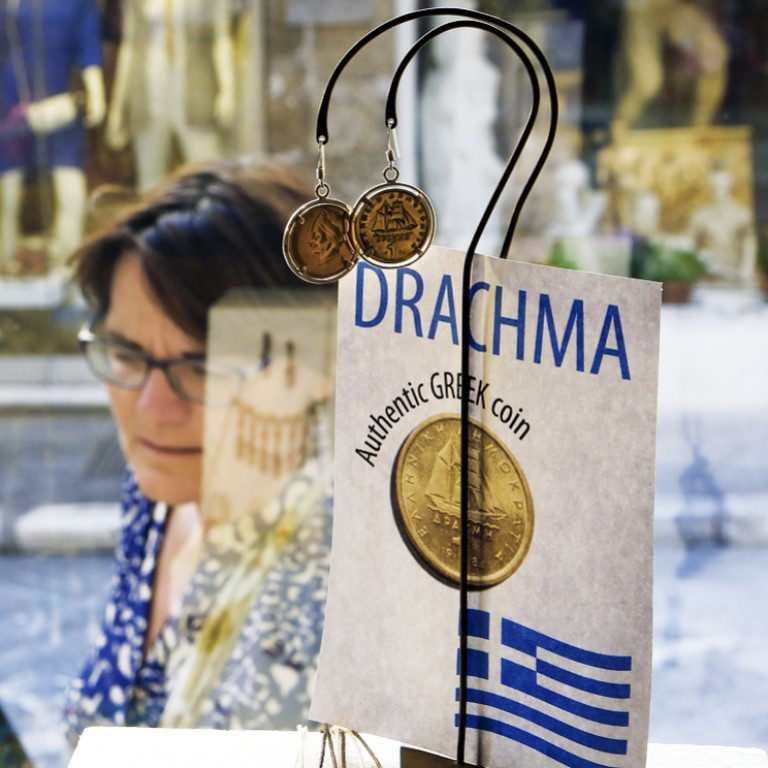
Can Greece start making drachma as a way out of euro debt crisis?
Issuing a new currency could take six months but it could rejuvenate economy, analysts say
With each day, the likelihood is growing that Greece's financial catastrophe will force it out of the euro currency alliance and compel it to restore its old currency, the drachma. It won't be simple.
Issuing a new national currency is a complex logistical task involving digital commands and manual labour. Greece would have to reprogram banks' computers to make the switch out of euros, the currency it's used since 2002. Then it would need to design, print and distribute new bills. That process would likely take at least six months.
In the meantime, Greeks would have to use leftover euros and possibly IOUs issued by their government. Then there's the challenge of persuading people to actually use a new currency printed by a government that can't pay its bills, especially when euros are still available.
The new Greek currency would almost certainly plummet against the euro soon after it was issued.
"They would be trying to do something for which there is no precedent," says Jacob Kirkegaard, senior fellow at the Peterson Institute for International Economics. "They would be trying to introduce a national currency while the existing national currency - the euro - is still in circulation."
Greece has already defaulted on its debts to the International Monetary Fund and is locked in contentious talks with its European creditors for new financing. Without a deal, Greece could become the first country to be pushed out of the 19-member euro-zone.

The Greek government could start issuing IOUs within the next few days as a first step towards a currency breakaway or even just as a stop-gap measure. IOUs worked for California during a state budget standoff in 2009. But California was expected to pay its debts and redeem the IOUs. And it did. The outlook for Greece is much less certain.
Analysts at Societe Generale suggest that, as a sweetener, Greece might offer a tax break to people who use IOUs. If a new version of the drachma is restored, the Bank of Greece, which operates a printing press in an Athens suburb, might be put to work to generate the new currency.
It would probably debut at a 1-to-1 value with the euro, and soon go into freefall. Over time, though, a shrunken drachma could help rejuvenate the Greek economy because it would make Greek goods less expensive overseas and draw bargain-hunting tourists to Athens and the Greek islands.
But for a while, the pain would be severe. Greek businesses and consumers who had borrowed from foreign lenders in euros would struggle to accumulate enough drachmas to make loan payments. Many would go bust. And the new currency would struggle to find acceptance in the marketplace.
"There would be a competition in Greece between the euro and drachma," Kirkegaard says. "The government could impose drachmas on retirees and others - the poorest in society. Those with access to euros, they'd be just fine."
